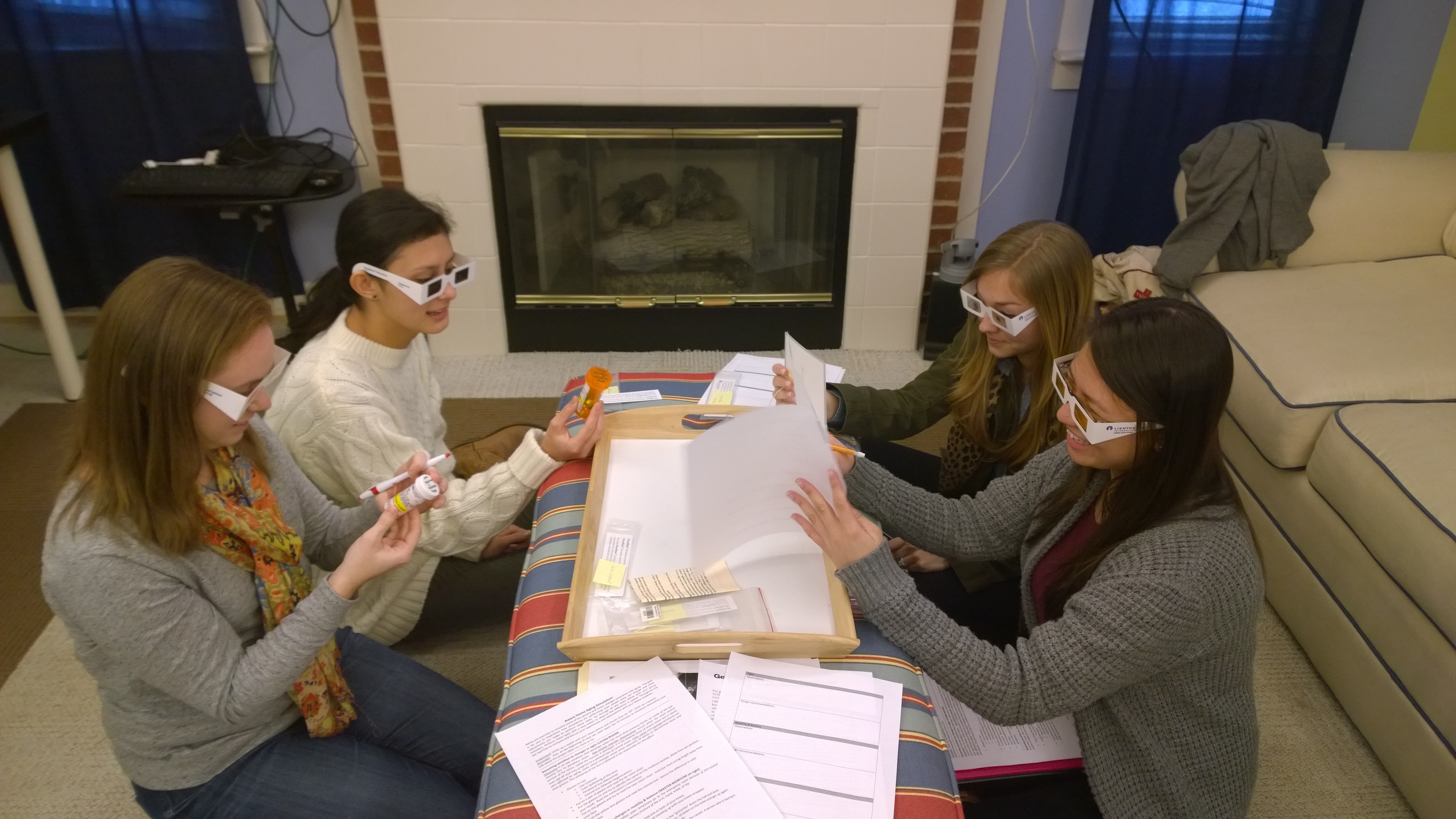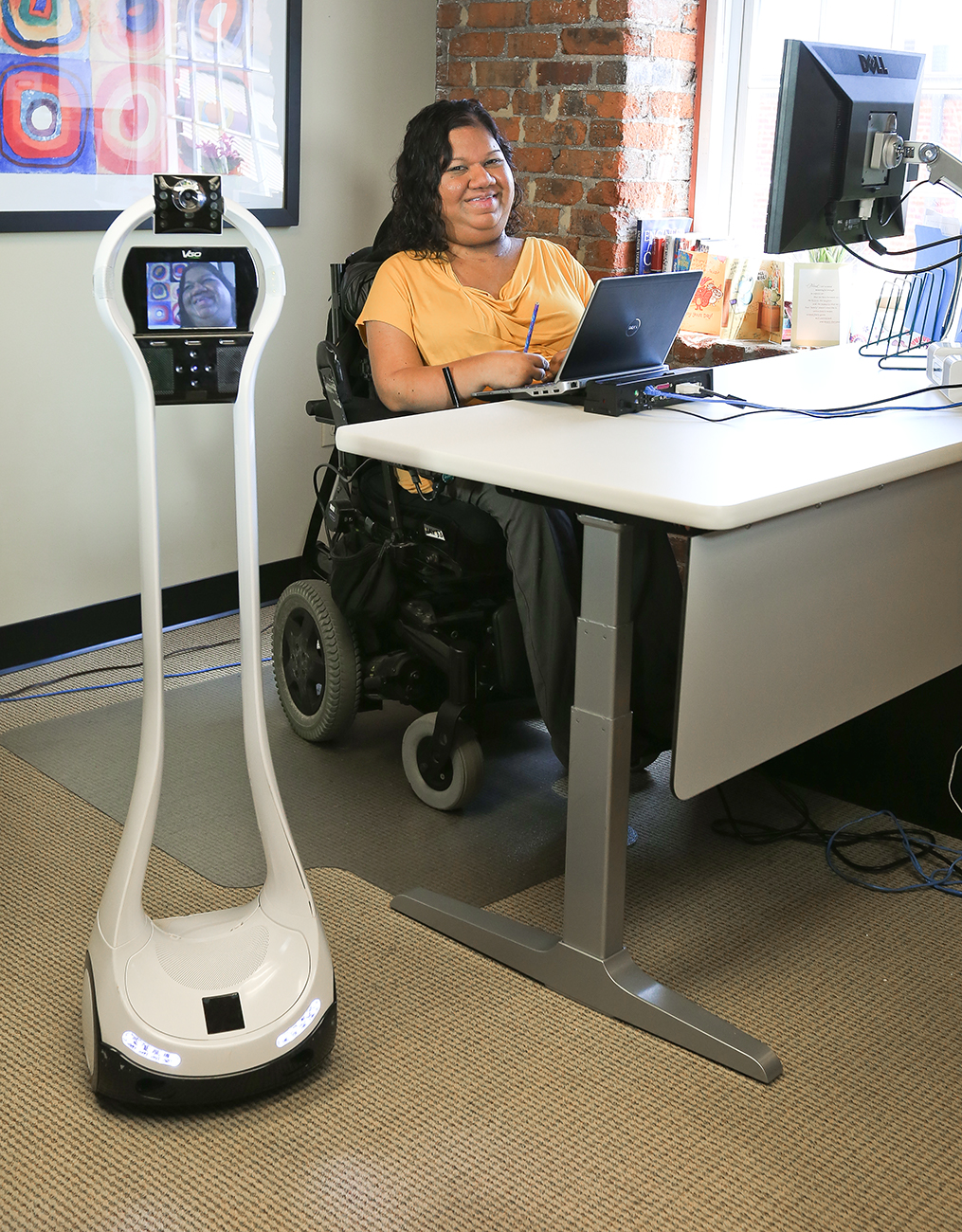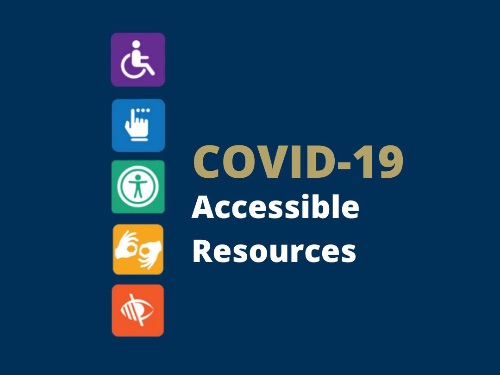- Jones, B. (Fall 2022). IPaT Living Lab Seminar (CS8001-IPT). Georgia Institute of Technology, Atlanta, GA.
- Jones, B. & Phillips, C. (Fall 2022). Accessibility and Inclusive Design (CS8803-AID). Georgia Institute of Technology, Atlanta, GA.
- Bayles, M. (Fall 2022). Human-Robot Interaction in Community Health (CHLH 400). University of Illinois Urbana-Champaign, Champaign, IL.
- Rogers, W. (Fall 2021). Human-Robot Interaction in Community Health (CHLH 400). University of Illinois Urbana-Champaign, Champaign, IL.
- Sanford, J. (Spring 2020). Health and Design Studio (ID 3031 Undergraduate). Georgia Institute of Technology, Atlanta, GA.
- Sanford, J. (Fall 2020). Health and Design Studio (ID 6062 Graduate). Georgia Institute of Technology, Atlanta, GA.
- Sanford, J. (Fall 2019). Wearables, Wizards and Wellness (ID 8083). Georgia Institute of Technology, Atlanta, GA.
- Sanford, J. (Spring 2019). Health and Design (ID 3031). Georgia Institute of Technology, Atlanta, GA.
- Sanford, J. (Spring 2019) Health and Design (ID 6062). Georgia Institute of Technology, Atlanta, GA.
- Sanford, J., Melgen, S., & Whitney, M.K. (Fall 2018). Universal Design in the Built Environment: Universal Design for Community Health (ID 4210/6800, ARCH 4843/8843), Georgia Institute of Technology, Atlanta, GA.
- Gandy Coleman, M. (Spring & Summer 2018). Principles of Computer Audio (CS4590), Georgia Institute of Technology, Atlanta, GA.
- Sanford, J. A. (Spring 2018). Health and Design (Graduate Industrial Design Studio). Georgia Institute of Technology, Atlanta, GA.
- Jones, B. (Advisor; Spring 2018). Mobile Ubiquitous Computing. Georgia Institute of Technology, Atlanta, GA.
- Rogers, W. A. (Fall 2018). Technology, Health, and Aging (CHLH494). University of Illinois Urbana-Champaign, Champaign, IL.
- Jones, B. (Fall 2017). Living Labs Seminar (CS8000AHS), Georgia Institute of Technology, Atlanta, GA.
- Rogers, W. A. (Fall 2017). Technology, Health, and Aging (CHLH494). University of Illinois Urbana-Champaign, Champaign, IL.
- Sanford, J. A. (Fall 2017). Universal Design for Sustainable Communities. Georgia Institute of Technology, Atlanta, GA.
- Rogers, W. & Dearborn, L. (Spring 2017). Studio: Aging in the American Dream (ARCH 572). University of Illinois Urbana-Champaign, Champaign, IL.
- Sanford, J. A. (Fall 2015), Universal Design (ID 6800 & 4210; ARCH 8843, &4843), Georgia Institute of Technology, Atlanta, GA.
- Sanford, J. A. (Spring 2015), Apps for Aging, Georgia Institute of Technology, Atlanta, GA.
- Sanford, J. A. (Fall 2014), Advanced Universal Design (ID 6800/Arch 8843), Georgia Institute of Technology, Atlanta, GA.
- Hussaini, H. (2023). Older Adults' Perspectives on Privacy and Security with Digital Home Assistants. [Honor's Thesis, University of Illinois Urbana Champaign]
- Blocker, K. (2022). Developing a Framework to Guide Personalized Support for Older Adults Learning Novel Technologies. [Ph.D. Dissertation, Educational Psychology, University of Illinois Urbana Champaign]
- Harris, M. (2022). Addressing Gaps in Equity through Wearables. [Ph.D. Dissertation, Community Health, University of Illinois Urbana Champaign]
- Khamzina, M. (2022). Successful Aging in the Presence of Disability. [Ph.D. Dissertation, Community Health, University of Illinois Urbana Champaign]
- Frechette, M. (2022). Cognitive-Motor Interaction During Wheelchair Propulsion. [Ph.D. Dissertation, Kinesiology, University of Illinois Urbana Champaign]
- Talyan, A. (2022). Optimally designing smart technology for older adults to assist them in their pet-caring activities. [Master’s Thesis, Human Computer Interaction, Georgia Tech].
- Lee, S. (2022). Development of a Dyadic Transfer Assessment Instrument. [Ph.D. Dissertation, Industrial Design, Georgia Tech]
- Abou, L. (2021). Factors Associated with Falls among Wheelchair Users Living with Spinal Cord Injury. [Ph.D. Dissertation, Kinesiology, University of Illinois Urbana Champaign]
- Fliflet, A. (2021). Insights on an Automated Fall Detection Device Designed for Older Adult Wheelchair and Scooter Users: A Qualitative Study. [Master's Thesis, Kinesiology, University of Illinois Urbana Champaign]
- Thompson, B. (2021). Evaluation of Mobile Devices as a Control Method for Augmented Reality. [Master’s Thesis, Georgia Tech].
- Levy, L. (2021). Impacts on performance effectiveness, processing efficiency, and subjective experience by music listening in extraverts and introverts. [Ph.D. Dissertation, Psychology, Georgia Tech]
- Eastwood, S. (2021). Understanding the Context of Receiving Assistance from Others with Everyday Activities: Insights from Adults Aging with Mobility Disability [Senior Thesis, Georgia Tech].
- Bayles, M. (2020). A Holistic Understanding of Older Adults’ Acceptance of Domestic Robots. [Master's Thesis, Community Health, University of Illinois Urbana Champaign]
- Frechette, M. (2020). The validity, reliability, and sensitivity of a smartphone-based seated postural control assessment in wheelchair users. [Master's Thesis, Kinesiology, University of Illinois Urbana Champaign]
- Hsieh, K. (2020). Fall risk assessment with mobile technology for people with multiple sclerosis. [Ph.D. Dissertation, Kinesiology, University of Illinois Urbana Champaign]
- Natarajan, P. (2019). Design of a Wine Opener for People with Limited Hand Function. [Master’s Thesis, Georgia Tech].
- Kascak, L. (2018). Development and Validation of the Universal Design Mobile Interface Guidelines through a Mobile Health and Wellness App for Individuals Aging with MS. [Ph.D. Dissertation, Industrial Design, Georgia Tech]
- Harrington, C. (2017). Understanding the effect of persuasive systems design on older adults’ physical activity levels. [Ph.D. Dissertation, Industrial Design, Georgia Tech]
- Keen, R. (2018). Improving Fixed-Route Public Transportation Systems for People with Disabilities Using Biometric Profiling and Geospatial Intelligence. [Master’s Thesis, Industrial Design, Georgia Tech].
- Park, D. (2018). A Multimodal Execution Monitor for Assistive Robots. [Ph.D. Dissertation, Computer Science, Georgia Tech]
- Kapusta, A. (2018). Optimization and Simulation for Robotic Assistance with Assistive Tasks. [Ph.D. Dissertation, Robotics, Georgia Tech]
- Grice, P. (2017). Assistive mobile manipulation for users with severe motor impairments. [Ph.D. Dissertation, Robotics, Georgia Tech]
- Stuck, R. (2017). Understanding dimensions of trust between older adults and human or robot care providers. [Master’s Thesis, Engineering Psychology, Georgia Tech].
- Upadhayaya, R. (2017). Delivering Medication Alerts to Older Adults Using Social Media. [Master’s Thesis, Human Computer Interaction Georgia Tech].
- Zhou, X. (2016). Smart Home System for Older Adults. [Master’s Thesis, Industrial Design, Georgia Tech].
- Cheuk, J. (2015). Universal Design Bathtub for Older Adults. [Master’s Thesis, Industrial Design, Georgia Tech].
- Li, Y. (2015). TripAdvisor Redesign for Seniors with Disabilities. [Master’s Thesis, Industrial Design, Georgia Tech].
- Li, G. (2015). Social Network Application Design for Elders Living in Senior Communities. [Master’s Thesis, Industrial Design, Georgia Tech].




